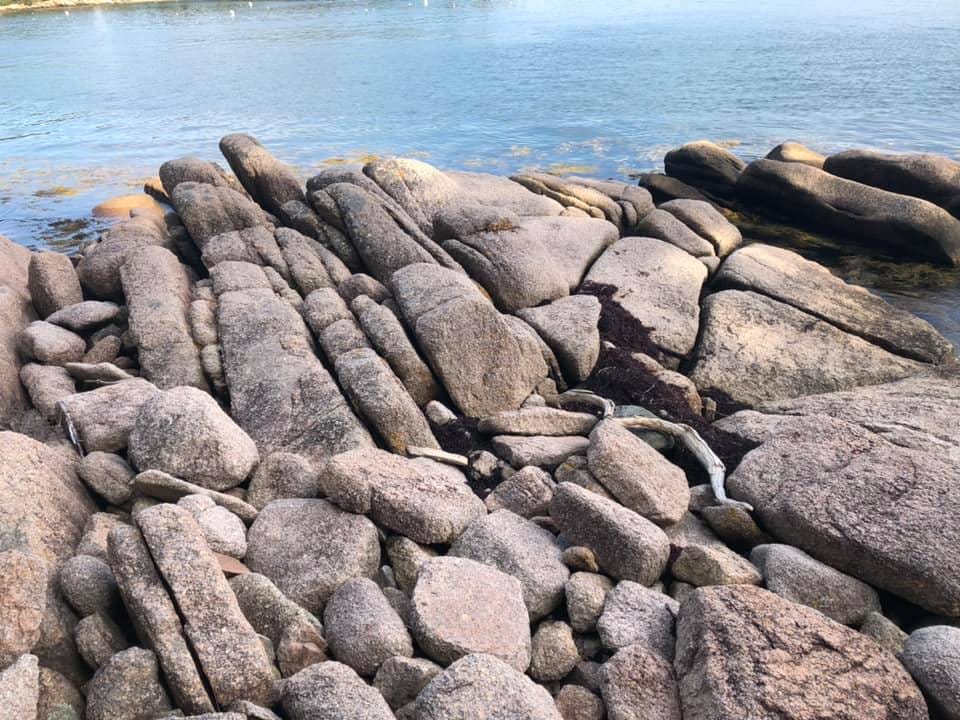Ban the Bucket List
Don't anticipate your own death. Try to prevent civilization's.
Deer Isle, Maine.
We have to think about nature differently, and about how we live within it. We can no longer think of it as something to be consumed. We have done that for the last two hundred years, and that’s one reason the Earth is overheating. Our children and their descendants will likely experience an era of mega-storms, new pandemics, and perhaps violent mass migrations as some regions can no longer support their populations and others become more able to grow abundant crops.
I think about this every time I re-boot my laptop. Microsoft Windows, after it finishes opening, displays alluring photographs of the wonders of nature. Mountains, forests, cliffs, glaciers, coral reefs, beaches and more. Each picture seems to say, To appreciate nature, get on a plane and come visit us.
Yet that is precisely what we should not be doing. We should not travel around the Earth to visit its wonders. Instead, we should look outside our windows. We should pause, on our neighborhood walks, to admire weeds and wildflowers. We don’t need to fly to Papua New Guinea to see birds of paradise—we have cardinals and blue jays. We should focus on what is close at hand and appreciate it more.
Visiting the same spot again and again throughout the year, at different times of day, can be enjoyable and enriching. You start noticing tiny differences. What bird was not here yesterday but is here now? How does a blustery wind out of the northwest change the feel and sound of the place? How quiet can it get in mid-winter? (Answer: So noiseless that once, as I sat alone in the Maine woods on a still February morning, I realized that the soft “shhh” I could hear was my own blood pumping through the arteries in my neck.)
This is why I think bucket lists are so pernicious. Any notion of must-see places around the world is a hidden commercial for consumption. It implies that a life isn’t well lived unless you travel to the Himalayas, or witness first-hand the blue ice of Antarctica, or paddle a tributary of the Amazon. Drive, fly and boat to remote corners of the globe to witness this or that! A bucket list turns the natural world into something to be consumed.
Here’s an alternative conception of what to do before you die: Plant a tree that will outlive you. Follow the progress of a bird that nests near you over the course of one year. Walk the same circuit every day for one year, noting all the tiny changes in leaves and animals. Plant a garden. Don’t crave excitement; instead, seek tranquility.
Will any of that do any good? Radical “post-environmentalists” such as Paul Kingsnorth might say no—it is already too late, our civilization is headed for a sharp, hard collapse. Kingsworth believes that sustainability is a foolish notion that will prolong the agony, not end it, and may delude people into thinking that extractive exploitation can continue.
Yet, as Kingsnorth notes in his writings, he himself is changing the way he lives. We need to do this not for ourselves, or even for our children—it’s already too late for anyone alive today on the planet—but to begin changing our culture so that, if it survives, it can better adjust to what is just around the corner and coming at us fast.




I don't know. I remember reading this by Marjorie Williams, one of the most inspiring and thought provoking op-eds I ever read, very explicitly anticipating her death. I think there's value in it.
https://www.washingtonpost.com/opinions/the-halloween-of-my-dreams/2012/10/31/80d281c0-2372-11e2-ac85-e669876c6a24_story.html